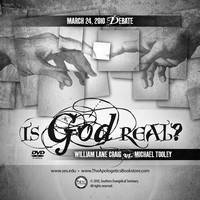Post Author: Bill Pratt
In the Book of Exodus, God commands Moses to tell the Israelites to take plunder from the Egyptians, and the Israelites did so as they were preparing to leave:
The Israelites did as Moses instructed and asked the Egyptians for articles of silver and gold and for clothing. The Lord had made the Egyptians favorably disposed toward the people, and they gave them what they asked for; so they plundered the Egyptians. (Ex. 12:35-36)
There is an interesting application of these verses to the thinking Christian. Saint Augustine noted, in his On Christian Teaching, the following:
The Egyptians not only had idols and crushing burdens which the people of Israel detested and from which they fled. They also had vessels and ornaments of gold and silver, and clothing, which the Israelites leaving Egypt secretly claimed for themselves as if for a better use. Not on their own authority did they make this appropriation, but by the command of God. Meanwhile, the Egyptians themselves, without realizing it, were supplying the things which they were not using properly. In the same way, all the teachings of the pagans have counterfeit and superstitious notions and oppressive burdens of useless labor. Any one of us, leaving the association of pagans with Christ as our leader, ought to abominate and shun them.
In other words, the Israelites took things (i.e., gold, silver, and clothing) from the Egyptians, things which the Egyptians were using to oppress, and put them to a better use. In the same way, says Augustine, just like gold, silver, and clothing, Christians may take ideas (or teachings) from non-Christians and put them to good use. However, we should shun the improper ways non-Christians use these same ideas.
Some have argued that Christians should shun all teachings by non-Christians. One example of this is the accusation sometimes heard from neotheists that the medieval church fathers borrowed illicitly from the Greek philosophers. Philosopher and theologian Norman Geisler responds to these critics:
Christian theologians of every age have been influenced to one degree or another by the prevailing philosophy of their day. But neotheists themselves are not immune from this: They reveal the influence of the prevailing process theology of our time. This in itself does not make their view of God wrong; neither does any influence by Greek philosophy make the classical view of God wrong. In the final analysis, the question is whether it was a good influence or a bad one—whether there are biblical and rational grounds for it or not. Rejecting a view because of its source is the genetic fallacy. It is not a matter of whether the reason is Greek, but whether it is good.
What is important about borrowing from non-Christians is that we take only what can be put to a proper Christian use. We leave what is intrinsically antithetical to Christian belief behind. In addition, we should avoid denigrating any idea just because of where or whom it came from. As Geisler points out, this is the genetic fallacy.
In my own education at Southern Evangelical Seminary, we frequently read books and articles written by non-Christians in order to familiarize ourselves with the most prominent thinkers of the past and present. Although much of what I read is antithetical to Christianity, some of it is not.
We are not reading these materials simply to learn how best to counter their arguments – though that is one reason to read them. We are also reading the material to gain insights on important philosophical and scientific issues.
Here is an example. One of the most famous agnostic philosophers of the 20th century was Bertrand Russell, a man who was strongly anti-Christian. Yet in reading some of his works I learned that he was a neutral monist.
What is interesting about neutral monism is that it rejects metaphysical materialism (which affirms that all that exists is matter and energy). Since materialism is the primary metaphysical opponent of Christian dualism in the 21st century, Russell’s arguments against materialism can be put to use by Christians who believe that materialism is an entirely inadequate metaphysical position.
On the other hand, an example of an idea intrinsically opposed to Christianity would be the Hindu teaching that God is all and all is God. If we tried to apply this idea directly to God, we would be in grave error. The Bible clearly teaches that God created the world, and that He exists independently from it. God can never be equated with the world, as if they are one and the same. In this case, we cannot borrow this Hindu idea and apply it to God.
Countless other examples could be given, but what is imperative is to always ground everything we learn in the biblical Christian worldview. If we stay in that framework, there are many ideas from non-Christians, and even anti-Christians, that we can rightfully borrow. Likewise, it follows that we cannot rightly discern what to borrow, or what to leave behind, unless we truly and thoroughly understand biblical Christianity.
 Because of some public statements Hitler made about Christianity, some have argued that he was a Christian himself, notwithstanding the fact that all of the the atrocities he committed were blatantly contrary to everything Jesus and his apostles ever taught. Nevertheless, these people maintain that he considered himself a Christian.
Because of some public statements Hitler made about Christianity, some have argued that he was a Christian himself, notwithstanding the fact that all of the the atrocities he committed were blatantly contrary to everything Jesus and his apostles ever taught. Nevertheless, these people maintain that he considered himself a Christian.